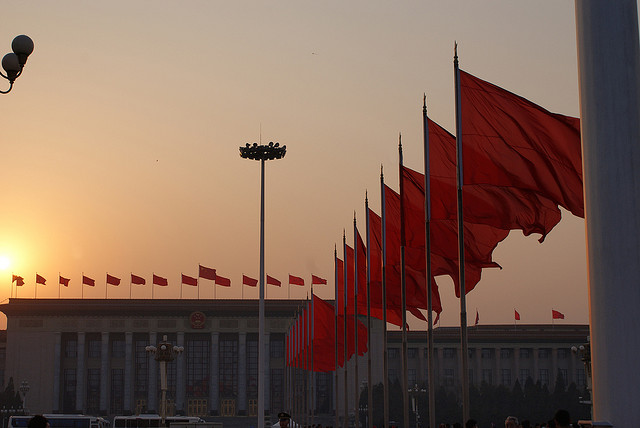A
fter Greece’s referendum on July 5, 2015, an overwhelming ‘No’ vote regarding whether or not the country should accept an international bailout in exchange for further austerity measures, commentators immediately began speculating about implications for the Eurozone in the future. The referendum showed the Greek citizenry’s unwillingness to play by the rules set by their European creditors, which is unsurprising given the swift collapse of the country’s economy that occurred following the implementation of previous economic reforms. With Greece poised to formally reject the bailout, it is unclear if the country will continue to operate in the Eurozone or revert back to its previous national currency—the ‘drachma’.
Perhaps the most interesting revelation of Greece’s ‘No’ vote, however, is that it indicates an inability to avoid severe flaws that were woven into the very fabric of the Eurozone upon its creation in 1999. While the media has been quick to place blame on a variety of stakeholders associated with the Greek debt crisis, such as Greek taxpayers, the country’s recently-installed leftist government, the Germans, and others, the truth is that such a catastrophe was bound to occur because of the structure of the Eurozone itself. All of the involved players will have to grapple with this reality sooner rather than later, or else face similar dilemmas in the future. Without a dramatic reshaping of the Eurozone, Greece will be the first of many victims harmed by the misguided monetary union in Europe.

The urge to create a single monetary union in Europe in the 90s was certainly understandable following centuries of brutal violence and antagonism between the continent’s various nations. The idea was that a common currency would promote economic interdependence among European countries, escalating the costs of war to such an extent that no rational actor would even consider it. Furthermore, there was hope that monetary union would facilitate economic growth and job creation. While Europe has been remarkably successful in avoiding interstate war in the past half-century, the economic situation has been far from ideal, and the recent Greek debt crisis is indicative of this.
Monetary integration in the absence of political union is a recipe for disaster. One of the fundamental issues of the Eurozone is that the preferences of voters in one state, such as Greece, for example, may be incompatible with those of another country, such as Germany. This problem is particularly acute between the strong economies of Northern Europe and the weaker ones of Southern Europe, whose citizens often have radically different priorities. For example, the German economy is currently in great shape, and its unemployment rate recently fell to its lowest level since East and West Germany re-unified. Conversely, the Greek economy is in a depression. According to economic theory, depressed economies should pursue aggressive stimulus by printing money and lowering interest rates, measures that would fuel demand, job creation, and growth. However, Greece does not have its own currency, and Germany’s needs must also be taken into consideration. For Germany, such stimulatory policies would only cause inflation. This dilemma illustrates one of the greatest flaws of the Eurozone, which is that countries with their own unique set of circumstances cannot implement appropriate monetary policies without undermining other members.
Another flaw of the Eurozone is that it generates artificial bonds between cultures that might not be compatible. One option available to job-seekers in economically stagnant countries is to migrate to a more prosperous area. However, in reality it is quite difficult for an unemployed Greek citizen to move to Germany in search of work. There are significant obstacles in place that prevent this from being a viable option, such as the lack of a common language or culture. In fact, migration might become even more difficult for job-seekers, especially as anti-immigrant sentiment rises in wealthy European countries that have effectively been subsidizing their poorer neighbours for years. In light of this, the establishment of a common currency in Europe has always been doomed to fail.
To put the problems of the Eurozone into perspective, it is worth looking at the mechanisms that make other monetary unions successful. In the United States, for example, there is a fiscal union in addition to a monetary one. When a poor state such as Alabama runs low on money, the federal government can transfer funds to it from more lucrative states such as New York. US federal lawmakers might also spend more in poor states in order to stimulate economic growth. Finally, the cultural barriers between Alabama and New York are minimal, and migrating from one state to another is considerably less difficult than it is in Europe. The Eurozone not only has to manage cultural disparities, but it lacks a central fiscal and political apparatus that can alleviate problems in economically-weak areas.
With these issues in mind, it is clear that the current economic predicament faced by members of the Eurozone was inevitable. The important thing to note is that the Greek debt crisis is not an anomaly, and without a rethinking of the Eurozone, similar situations will unfold in the future. A recent study suggests that regardless of whether or not Greece remains in the Eurozone, the latter will not be able to survive without drastic reform. Europe can either integrate even further or dismantle the Eurozone entirely. Before this choice is made, however, European policymakers must first come to terms with the fact that monetary union is not working.




